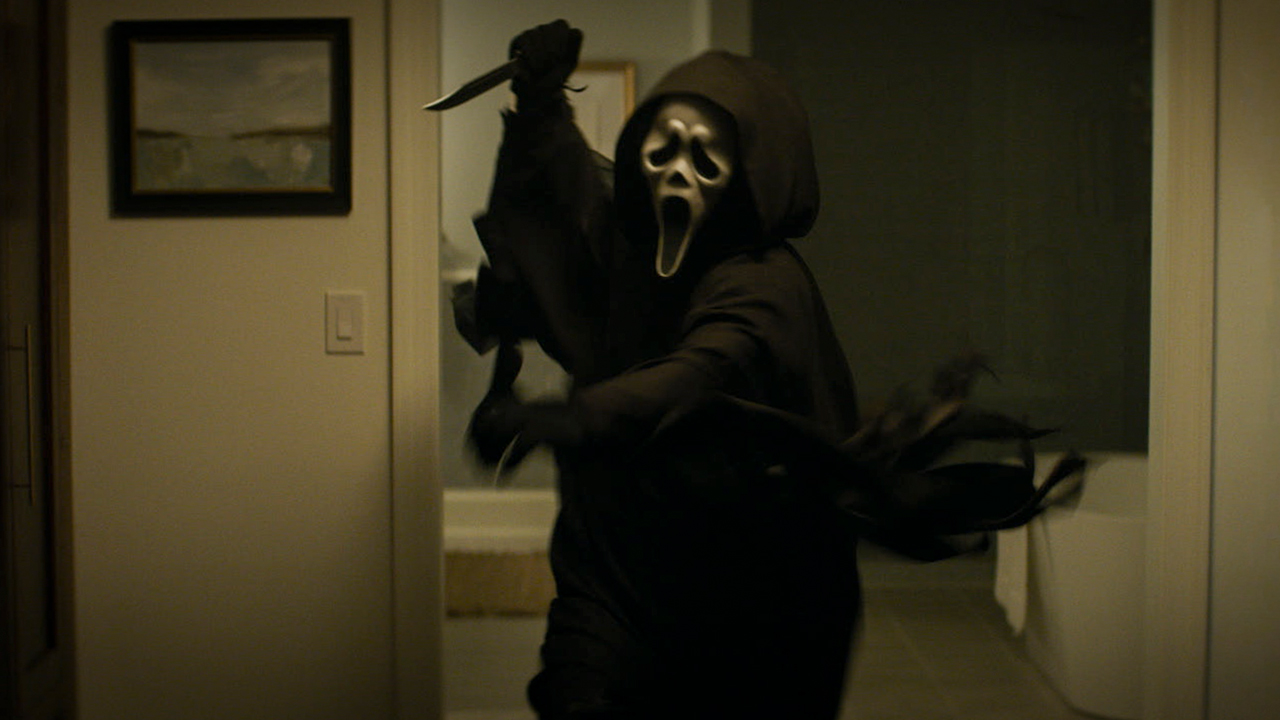Exclusive Interview: Sherlock Holmes Villain Mark Strong
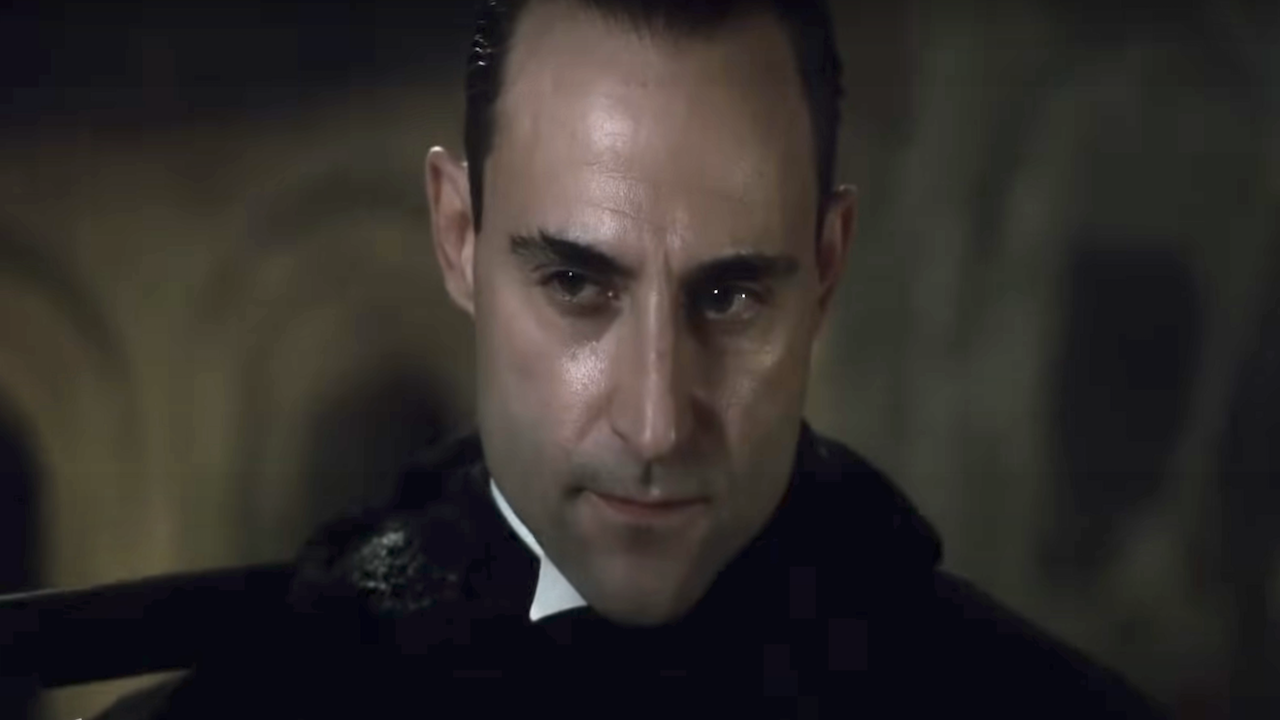
Your Daily Blend of Entertainment News
You are now subscribed
Your newsletter sign-up was successful
If you've noticed Mark Strong in the movies lately, it's probably because you've been scared of him. From Stardust to Body of Lies to this Christmas's Sherlock Holmes, the experienced British theater actor is making a name for himself as a reliable villain, despite the fact that when I interviewed him over the phone last week, he was probably one of the nicest people I've ever spoken to. In Holmes, on the other hand, he's the ruthless Lord Blackwood, a power-hungry and secretive guy who's convincing the most powerful people in London that he has magical powers-- everyone, of course, except the ever-skeptical Sherlock Holmes.
Strong will be seen in some of the most anticipated movies of the next year, as a villain in both Ridley Scott's Robin Hood and Matthew Vaughn's Kick-Ass. I've excerpted our conversation about those films, including fighting a 10-year-old girl and massacring monks, at the beginning of the interview. After that you can read about why he keeps working with Guy Ritchie, what it's like to become famous in your 40s, and playing the straightforward villain in a movie as silly as Sherlock Holmes. The movie opens wide on Christmas Day.
In addition to Guy Ritchie, you've worked with Matthew Vaughn several times, and you've got Kick-Ass coming up together. It seems to have a similarly comedic tone to Sherlock Holmes and you're also playing the bad guy. Is that the same kind of thing you're doing for this, playing it completely straight?
Yes. That allows a little more humor. It's so violent all the studios turned it down. People who love graphic novels tend to be disappointed by the films that are made of them, and Matthew I think felt a real responsibility to make this as close in tone as he possibly could to the graphic novels, which he has done. Consequently it's extremely violent. What he's done to make it accessible and great fun is to inject a very humorous note using the soundtrack. The scenes play very wryly humorous, and there's just enough wit and humor in there to allow this world to exist in another place. Even though it's violent, it's not the real violence that you encounter every day. It's on another plane. I can play with [Frank, my character] a little more, because the tone of the film is very witty, very funny and very dark. I can allow Frank to be that as well.
Did you have to fight one of the kids in the cast?
[Laughs] Yeah, I did. Which is an extremely strange way to go to work, to spend two weeks beating up a 10-year-old girl. It really twisted my head.
Your Daily Blend of Entertainment News
Is that the same as in Sherlock Holmes, where the tone is the most important thing to keep in mind?
I think so, yeah. I think ultimately that's what makes a movie successful. You need an audience to immediately relax because they understand what they're going to see. Kick-Ass is very successful with that. I believe the opening scene did that for me. I watched the opening scene and said, OK, great, now I know what I'm in for. It makes you comfortable with what you're going to see, and it allows the filmmaker to play with that even more.
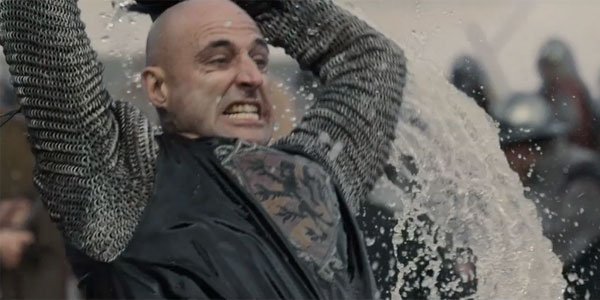
We saw the Robin Hood trailer recently, and we saw you in a bit of a battle scene. That's another movie taking an old character and putting a twist on him. Can you tell us what we should be expecting from that?
I haven't seem the trailer yet, so I don't know what tone they're setting with that. But I do know that Ridley has created a massive landscape in which he's shooting a story about a man on a personal discovery who exists in the time of Robin Hood. He's called Robin of Loxley, there's Maid Marian, the Merry Men are all around, it's a famliar environment that stems from the myths and legends of Robin Hood, but it's not the story that we think we know. It's basically, again, like Sherlock, a re-examination, a look at that period and that guy and the creation of a story around him. Most of it is to do with what was going on at the time and a guy's personal journey through that.
And your character exists in real life?
He's called Sir Godfrey, based on a true knight of old. But he didn't actually behave the way my guy does. My guy is a traitor who causes a lot of trouble and enjoys every moment.
Sounds like another fun villain role.
It was fun, I have to say, I enjoyed every minute of it. It was a lot of riding around masscring monks.
[Before this part of the conversation begins, we had been talking about working with CGI backgrounds and other special effects]
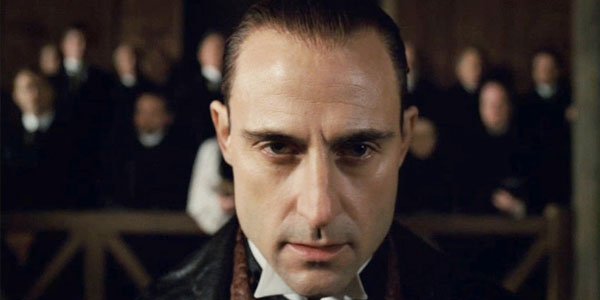
Even in a movie like Sherlock Holmes, you're on a bridge and you're supposed to be 800 feet in the air, that's an element of pretend as well.
Yeah, definitely. The immediate environment of being up there is we were wearing the Victorian gear, standing on a girdered bridge with all the little props and things nearby. It felt like being there. There was enough information to carry on with, and when I saw the movie it was breathtaking.
When you've got this huge shoot with big stars and Guy Ritchie being in the tabloids and you're in the middle of London, how hard is it to do your job? I assume there are crowds gathering everywhere.
It's the same, really. Whether you're doing a small intimate film with only a few people around or a big-budget movie with lots of people around, really the only important bit is when the camera is rolling and what your truth is. And that doesn't really change, however big. I've always wondered in the past, my god, what happens if you get to that level where you're doing that, how can you hold your nerve? But the fact is it's the same discipline that's required from doing a very small short film.
You've got this background with Guy Ritchie, and everyone always talks about how distinct his camera work is. Do you notice that when you're in front of the camera, how his style works as opposed to other directors?
No, because what Guy's fantastic at is taking the raw material that we shot into the edit, and that's where he creates the magic. Your job is not to anticipate that. What you've got to do is basically like you would on any other set, with any other director. What Guy is brilliant at is taking all of that and giving it something extra, which is his own style.
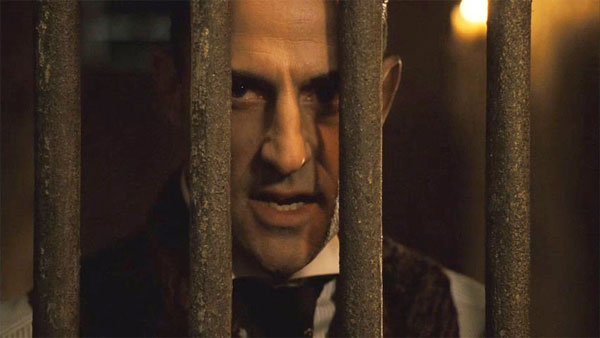
So what is it that makes you keep coming back to work with him?
I like him. He's a really nice man. He's an ego-free zone. I've never known anybody to have such a different evaluation in the press as the person they are in real life. It's very odd that he's seen the way he has been, beacuse he's incredibly easy to work with.
In this film you're the straightforward villain, but the movie has kind of an arch tone. Does that affect what you're doing, or do you call upon yourself to be as serious about your job as Lord Blackwood would be?
We had to know exactly what that tone was, and I think Guy certainly had an inkling of it, and Robert certainly had an inkling, and brought what he does to the film. He's very mischievous, Robert, and very mercurial. I think Guy also is a little like that, so they encouraged each other to make that tone. It therefore meant that I had to be very careful with what I was doing with Blackwood. If I'd made him smirky or a mustache-twirling villain, it would have been less interesting than what I ended up doing, which was basically playing him dead straight. If we'd all been wandering around being witty and slightly amused with everything, it wouldn't have been enjoyable I think.
You seem to know a lot about the mental state behind a lot of the directors you're working with. Is this a benefit of working with them multiple times, getting to know them on this level?
Yeah. I think the most important thing about the jobs that I do is the director, because ultimately the director takes the raw material and fashions it in the edit. You have to really trust them. You have to trust their intelligence, their appetite, their ability, their undrstanding of what they've got. If you trust somebody to do that, then I'll work with them again and again. It's very rewarding for me to think that those guys have come to me. It's not that I ring them up and say "Hey, I'm free, give me a job." It must mean that I keep doing something right.
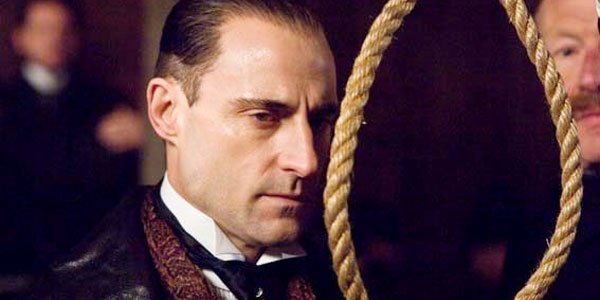
And do they cast you as a villain because they know that's what you're good at?
Yeah. I've been doing this 25 years, and you discover as you go along what you are best at and what challenges you most and wht you enjoy most. I've found that recently the parts of the villain, psychologically, are more interesting to me. I'm being facetious, but once the good guys rescue the puppy and smile, what's left? Whereas with the bad guy, you always want to find out what the hell is going on in there to make him so evil. Obviously they've seen me do stuff in the past and they think, he can do that, he's good at that. In time I'll slowly leave those behind and do something else, but I'm enjoying them.
You've gotten to this point of stardom where you're in like four movies next year. Is it easier to reach this level now than it would have been when you were 20?
Theater is gold dust. It gives you an ability to learn how to relate to an audience, it teaches you timing, it gives you confidence. You watch actors of all ages, not only how they rehearse but how they perform, and how they behave between performances. And television gives you experience in front of a camera, makes you unerstand how to shoot stuff out of sequence. All the stuff that I've learned in theater and television is coming to fruition in film, which I've only been doing seriously for the last sort of four or five years. I'm very conscious of the fact that I'm choosing parts and scripts that I love, and I'm doing them. I've got no career plan. I'm just taking everything that I think will help me to learn and I'm doing it now, with a view to building up a body of work that will allow me later to pick and choose the things that I want to do.
And you're lucky that you're choosing who you work with, since a lot of actors never get to that point.
I know, and I suppose that's what you forget, isn't it. As you climb up the greasy pole, you forget how difficult it was a little further down.
Staff Writer at CinemaBlend

